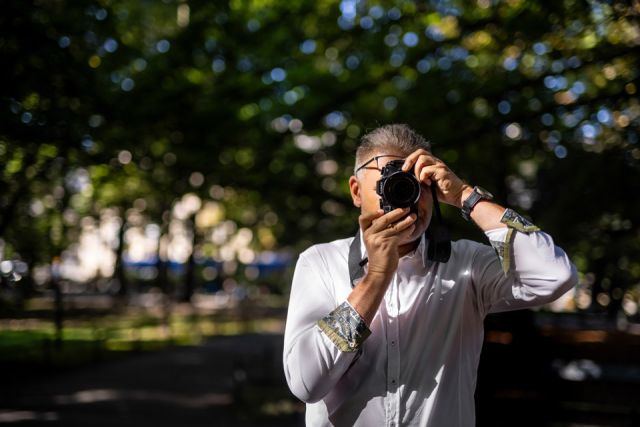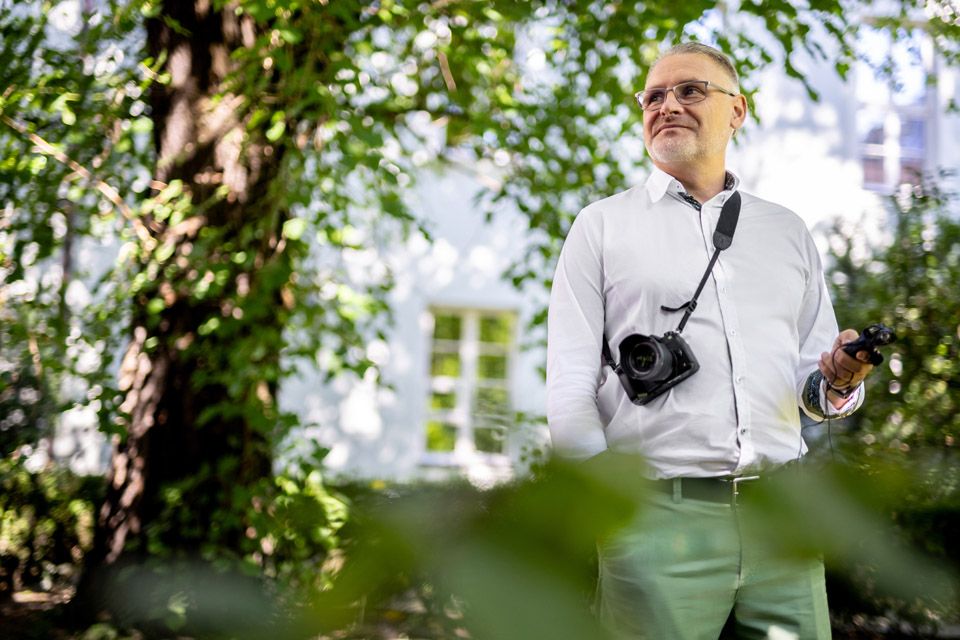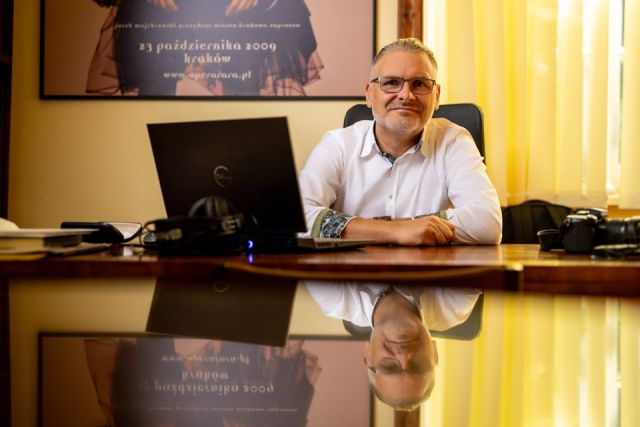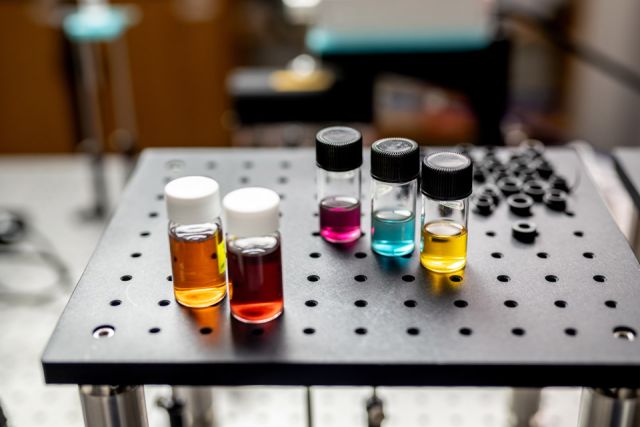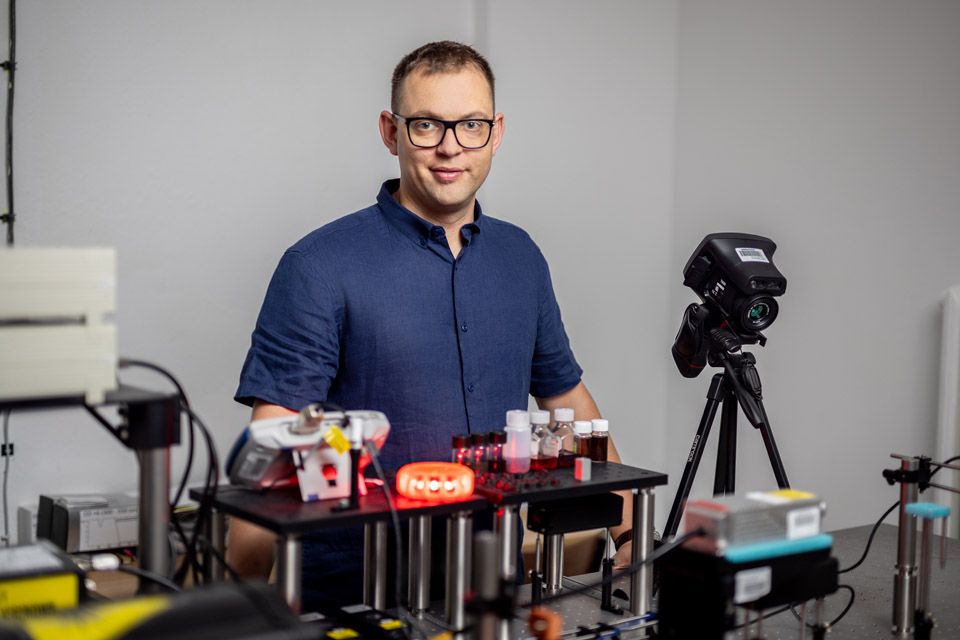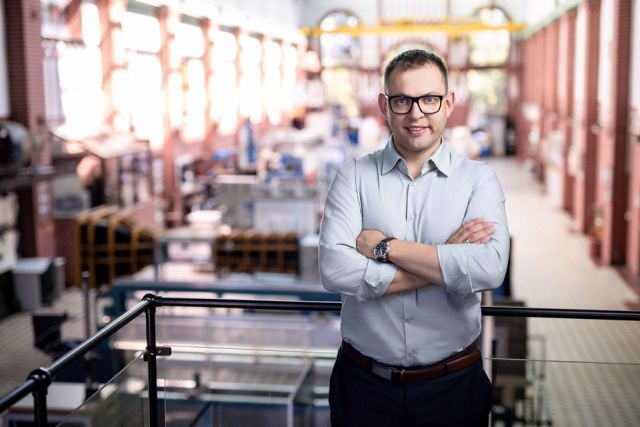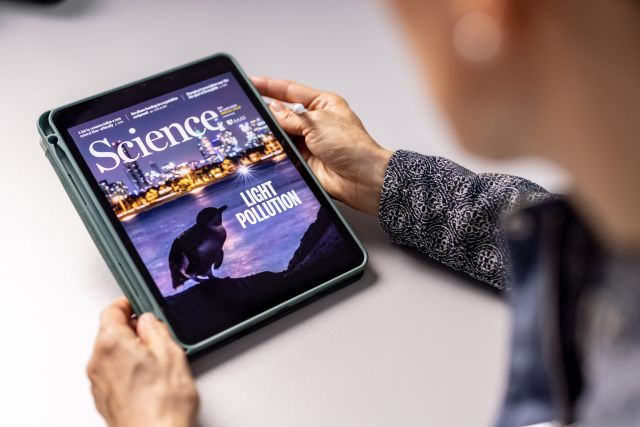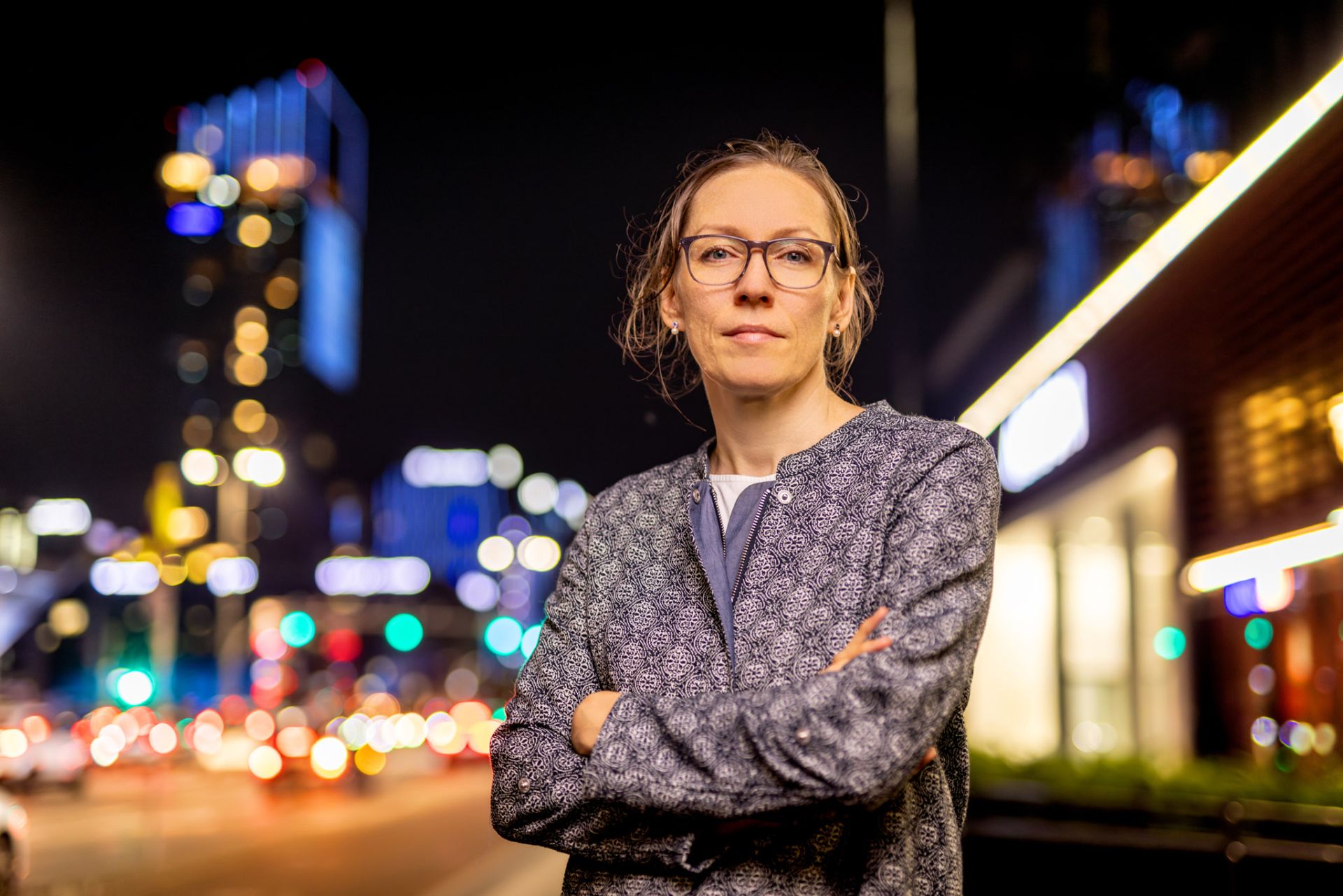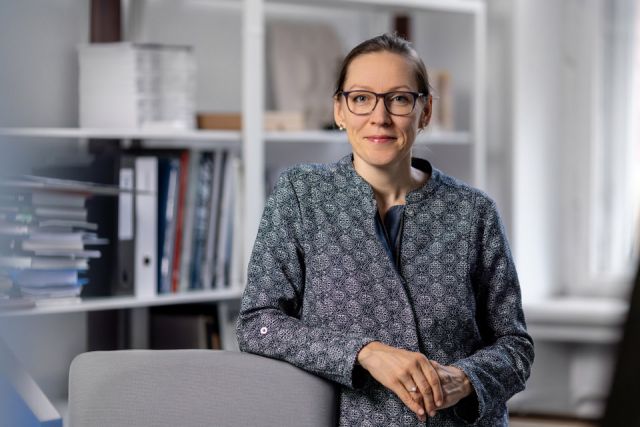Poland is one of the countries with the fastest growing light pollution in Europe. As much as 20 per cent of the country's population lives in areas where the night sky is so bright that human eye remains in daytime vision mode around the clock. This problem affects us all, although most of us are not aware of it.
Electric light pollution is the term used to describe all the negative effects of excessive night-time exposure to artificial lighting on humans and the environment. Exposure to light at night, among other things, puts strain on the visual system, disrupts the circadian rhythm, inhibits melatonin secretion, and impairs sleep quality. A growing body of research also points to an increased risk of chronic diseases associated with prolonged exposure to artificial lighting at night, although knowledge in this area is still developing. Electric light at night also has an impact on ecosystems – by disorienting wildlife, disrupting migrations, interfering with plant life cycles, and undermining biodiversity.
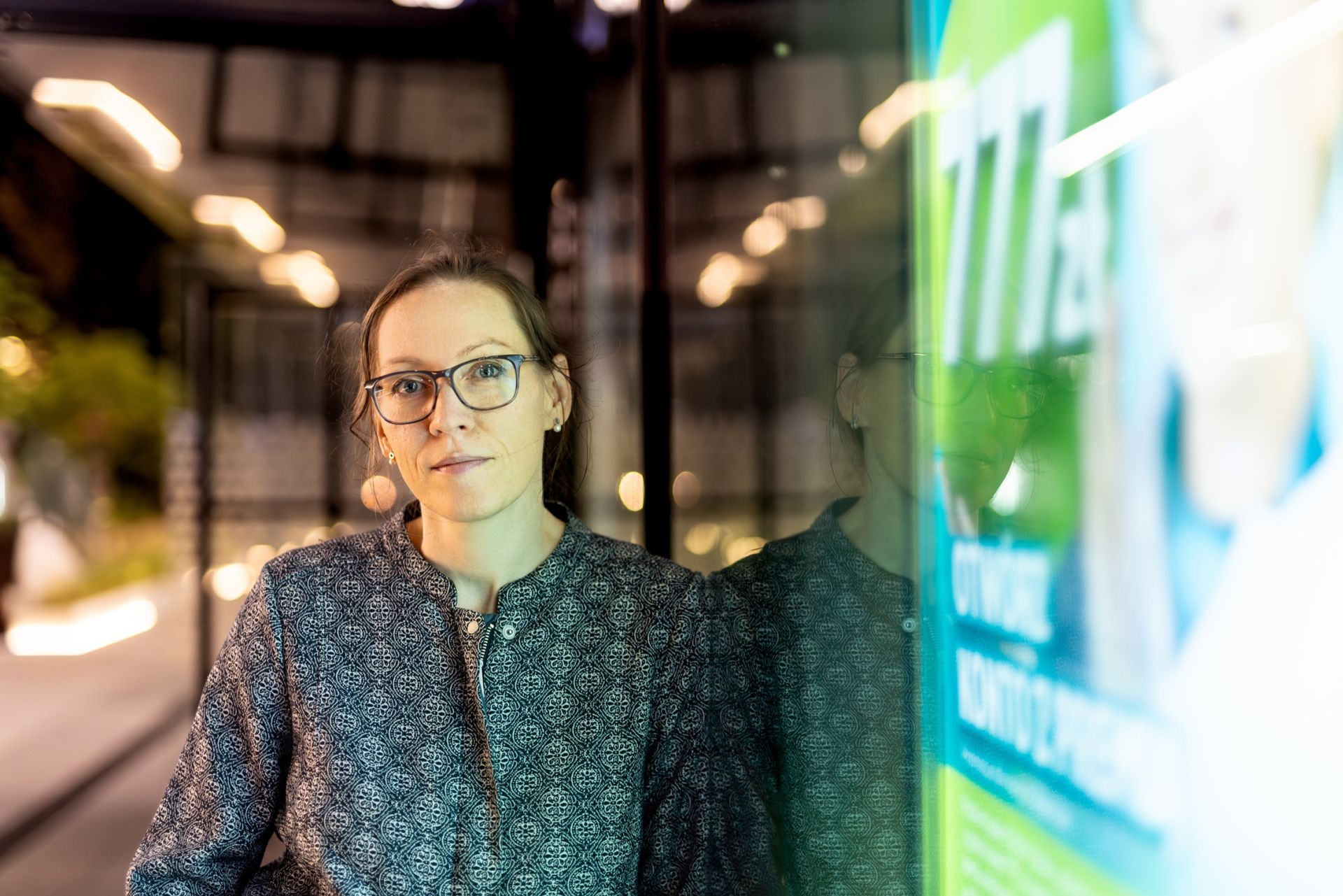 Prof. Karolina Zielińska-Dąbkowska
Dr hab. inż. arch. Karolina Zielińska-Dąbkowska is an architect and lighting designer and a professor at Gdańsk University of Technology; she studies the impact of artificial light on health and the environment. She has worked in Berlin, London, New York, and Zurich, participating in illumination projects such as the Burj Khalifa in Dubai, the Tribute in Light Memorial in New York and the illumination of the new Planetarium for the Royal Observatory, Greenwich. She is a member of the prestigious Royal Institute of British Architects (RIBA) and the sole representative of Poland to hold the status of professional member in the International Association of Lighting Designers (IALD).
Prof. Karolina Zielińska-Dąbkowska
Dr hab. inż. arch. Karolina Zielińska-Dąbkowska is an architect and lighting designer and a professor at Gdańsk University of Technology; she studies the impact of artificial light on health and the environment. She has worked in Berlin, London, New York, and Zurich, participating in illumination projects such as the Burj Khalifa in Dubai, the Tribute in Light Memorial in New York and the illumination of the new Planetarium for the Royal Observatory, Greenwich. She is a member of the prestigious Royal Institute of British Architects (RIBA) and the sole representative of Poland to hold the status of professional member in the International Association of Lighting Designers (IALD).
After nearly 20 years of working abroad, she returned to Poland. Earlier, she had completed her PhD here as an external candidate, earning the Prime Minister’s Award for her dissertation. She represents two worlds – researchers and practitioners. She says she can translate the findings of researchers into a language that lighting designers can understand while also identifying problems that researchers may overlook.
Her articles have appeared in Science and Nature, among others, and a publication in Science was the result of the MINIATURA project funded by NCN. She is currently co-directing an international project PLAN-B as part of Horizon Europe, which aims to develop solutions to reduce noise and light pollution – two key threats to ecosystems and biodiversity in Europe.
Interview with Prof. Karolina Zielińska-Dąbkowska on light pollution, by Anna Korzekwa-Józefowicz.
Light that (doesn't) serve us
Anna Korzekwa-Józefowicz: Is there such a thing as good artificial light that is friendly to human health and the environment?
Karolina Zielińska-Dąbkowska: Since the invention of the electric light bulb, the industry has continuously offered us new solutions, promoting them as healthy, although they are not necessarily so.
For thousands of years, the human body has adapted to the cycle of day and night, with sunlight regulating key biological processes. There is not – and probably never will be – artificial lighting that fully replicates the properties of natural light. Its wavelengths change throughout the day: warm, reddish tones dominate at sunrise, around noon, the spectrum becomes richer in blue light wavelenghts, and in the evening at sunset warm colours predominate again.
Research into the spectrum of different light sources has shown that, paradoxically, one of the healthiest options was the traditional incandescent light bulb. It emitted a warm, continuous spectrum of white light, similar in tone to sunset, with a small amount of blue light wavelenths. Its disadvantage, however, was its low energy efficiency – it only converted about 10% of its energy into usful light and the rest into heat.
Compact fluorescent lamps, known as energy-saving light bulbs, which were used until recently, contained mercury, in liquid and vapour form, posing a risk to both human health and the environment. Many people threw them in the regular rubbish and, when broken down in landfills, the mercury leaked into the environment. It is only relatively recently that we have begun to recognise the scale of this problem.
Traditional incandescent light bulbs are no longer sold in the European Union, and the production of fluorescent lamps is also being phased out. LEDs are commonly used. Is this not a good solution?
LEDs are energy efficient and have revolutionised the lighting industry – they are now the most commonly used source of white light. However, the use of LED light requires awareness and responsibility.
Not everyone realises that the light we perceive as white actually comes from a blue LED coated with a layer of luminofor – usually phosphorus. It was the invention of white light from blue LEDs that enabled the development of this technology, for which three Japanese scientists were awarded the Nobel Prize in 2014.
Until the end of the 20th century, it was believed that there were only two types of photoreceptors in the human eye: cones, responsible for colour vision, and rods, enabling vision in low light. In the early 2000s, however, a third type was discovered – intrinsically photosensitive retinal ganglion cells (ipRGCs). These are particularly sensitive to wavelengths of around 480 nanometres, i.e. just blue light.
Depending on the thickness of the phosphor layer, LED light may appear warmer or cooler, but regardless of its colour, our eyes still register wavelengths between 460 and 500 nanometres. They are characteristic of daylight with a cloudless sky at midday, which has a significant impact on the human body.
Is the body sending us a signal to take action?
Yes, because blue light stimulates the production of cortisol – the activity hormone. Therefore, exposure to LEDs in the evening and at night can disrupt circadian rhythms, making it difficult to fall asleep and reducing melatonin secretion. This can interfere with natural biological processes and lead to long-term health consequences.
But the effects of artificial light are not only felt by people. Even warm LED light, which seems more friendly to us, can disturb other organisms. Trees exposed to such electric light at night do not shed their leaves for the winter, disrupting their growth cycle – when frosts come, the freezing sap can damage their tissues and lead to death. Fireflies lose their ability to find each other because their natural light signals are drowned out by the intense glow of electriclighting, making it difficult for them to reproduce. Migratory birds mistake the LED light for stars, which they use for navigation, and as a result, many die by crashing into building windows. Many cities in the United States have therefore begun to turn off or reduce night lighting during bird migration to reduce these losses.
Can't LEDs be modified to make their light more natural and healthier?
LED technologies are based on electronics. To replicate the daylight spectrum, it would require wavelengths that are naturally present in sunlight such as near-infrared and infrared. The latter makes us feel the warmth on our skin during the day and helps counteract the harmful impact of UV radiation on our eyes. However, if we tried to add it to LED lighting, it would cause the electronics to overheat. Therefore, there is no chance of implementing such a solution 100 per cent.
Poland today is where France was 30 years ago.
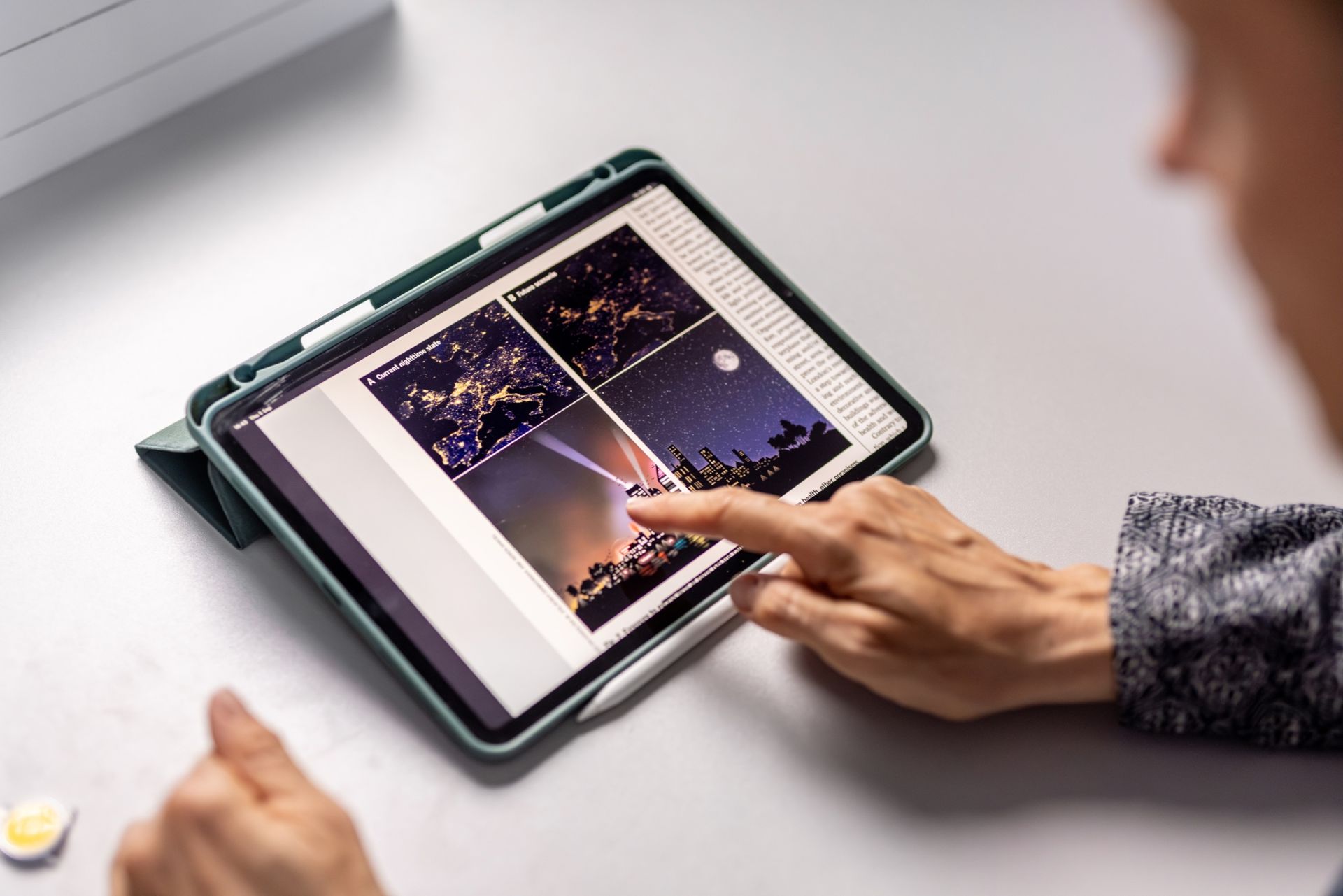 In that case, how can we reduce the negative effects of artificial lighting on people and the environment?
In that case, how can we reduce the negative effects of artificial lighting on people and the environment?
There are guidelines for designers to help reduce light pollution. One example is The ROLAN Manifesto, developed by the ILLUME research group, which I lead at Gdańsk University of Technology, in collaboration with the International Dark-Sky Association and other international organisations active in the field of electric lighting. The document outlines 10 rules for responsible use of light at night. Above all, light should only be used where it is really needed, with appropriate brightness and colour, directed properly, and controlled in terms of timing and duration.
Of course, not everything can be changed immediately, as there is often a lot of money involved. If, for example, the city has already made a decision without prior consultation and invested in cold LEDs, they will likely remain in place for the next ten years or even longer – no one will have the budget to replace them immediately.
Just a few years ago, I lived near green spaces. Then a new street was built right outside my window. There’s hardly any traffic at night, but a dozen street lamps shine straight into my bedroom windows. What can be done in such a situation?
Smart lighting control systems using motion sensors can be implemented. In practice, this means that light intensity in residential areas can be automatically reduced, e.g. to 20% during the night hours. When movement is detected, such as a car, pedestrian or cyclist, the sensors detect the presence and gradually increase the light intensity. When the traffic stops, the system dims it again. Other options include, for example, switching off some street luminaires during certain hours. Additionally, glare shields can be designed on the street luminaire, in which case the light beam is directed away from the windows.
It is not only street lighting that is responsible for excess light in cities.
Obviously, if the street luminaires on lamp posts are not directed downwards, the light spreads above the horizon line, contributing to the creation of an urban glow. But there are other major culprits as well. These include illuminated advertisements, which are often mounted vertically, as well as decorative building lighting, and the lighting of sports facilities or events. In Poland, solutions that were popular in France in the 1980s and 1990s are still being used, i.e. so-called flood lighting, where reflectors placed at the bottom direct the light upwards or at an angle.
Decorative lighting can theoretically be switched off, but it all depends on how it was originally designed. If an electrical engineer or professional lighting designer was in charge of the project, they might have persuaded the developer to implement appropriate solutions – for example, wiring that allows independent control of individual groups of luminaires. In that case, the lights can be switched off as needed.
Unfortunately, in many places lighting systems only operate in 'on/off' mode, with the only control being an outdoor dusk sensor that automatically activates the lighting when darkness falls. Of course, more advanced light intensity control systems can be implemented, but that comes with additional costs and there are other priorities in many places.
In February, the city of Krakow adopted a resolution limiting noise at night, which is expected to significantly improve the quality of life for residents. Similar regulations are in place in Gdańsk and Poznań. Could the next step be measures to reduce light pollution? Are there any good examples to follow?
The problem of light pollution is still not taken seriously enough in our country. And the bigger the city, the more difficult it is to implement changes. In smaller towns, it’s much easier.
A good example is the municipality of Jeleśnia, specifically the village of Sopotnia Wielka – the only place in Poland to hold the international Dark Sky Community certification, awarded by the Dark Sky International organisation. Residents have been actively involved in protecting the dark sky, resulting in switchable street lighting directed downwards with the option to switch it off when needed. The lighting of the church façade and private properties was also modernised, reducing upward light emissions. As a result, Sopotnia Wielka has become a place well-suited for astronomical observations – both amateur and professional. This is the result of years of work and a conscious approach to lighting management.
But overall, it seems to me that in Poland, if something is not a statutory obligation, not many people feel the need to deal with it. Why do this when there is no requirement to do so?
This issue is not regulated by law?
In environmental law, the problem does not exist at all. There are no comprehensive strategies or so-called lighting masterplans that specify where electric light should be reduced and where more light is allowed. This includes national parks, landscape parks and Natura 2000 areas, which should receive special protection.
One often hears about huge advertisements shining directly into people's windows and there is little residents can do about it. There is only a general mention in the building regulations of permissible light emission levels, but when it comes to moving advertisements, there aren’t even affordable, widely available tools to accurately measure them. There are also no legally defined levels of vertical light intensity – there are only non-binding recommendations in the Polish Lighting Standard.
Letters to the Ombudsman
If there is a lack of statutory solutions, who protects the dark sky?
People are writing complaints to the Ombudsman. The Ombudsman addressed the Ministers of Environment and Health to intervene, but their response was unequivocal – “this is not our problem.” Last year there was also a large interdisciplinary seminar organised by the Ombudsman's office, which I attended as a speaker.
In addition, the issue is virtually non-existent in the public debate and there is a lack of understanding at national level. This may change, however, as several research projects on artificial light pollution have recently been launched within the European Union. I myself won and am co-leading one of them – its aim is to develop guidelines for cities to reduce light and noise emissions, taking into account their impact on biodiversity and ecosystems.
So, regulations will sooner or later be introduced at EU level and Poland will have to adapt to them – first in national and then in local regulations.
If there are interventions addressed by the Ombudsman, I understand that at least some of us are aware of the consequences of using excessive lighting.
Public awareness of this issue is certainly growing. A good example is the situation in Gdańsk on Góra Gradowa, a scenic viewpoint surrounded by greenery and home to bats, where amateur astronomers can still observe the night sky.
Some time ago, there was a proposal to create an Illumination Park there – a space with intense lighting, which was to have an educational function and attract tourists. Residents, aware of the negative effects of excessive light, began to protest. Public consultations were organised, involving biologists and a well-known bat expert from the Tricity area.
Thanks to this mobilisation, the issue gained such publicity that the city council members got involved and the project was put on hold. This is an example of how public pressure can influence government decisions, especially when the issue gains media attention and experts get involved.
What we need is greater awareness
Which areas should be especially protected from light pollution?
I dream of a future where every city is required to have an urban lighting masterplan. Such a plan would clearly define how lighting should be designed in urban spaces. When a building permit application is submitted, it would be possible to check whether, for example, a large, illuminated advertisement is close to a valuable natural area or residential zone.
The second thing is the protection of ecologically valuable areas, such as Natura 2000 sites, to preserve the habitats of plant and animal species that are particularly important to the European Union. In many countries these areas are of great importance, but in Poland their significance is still not widely understood. In Gdańsk, one of the sites we are investigating as part of the EU grant is the Wisłoujście Fortress. It is a historic fortification, but it is also a place where bats, including one very rare, endangered species, have been wintering for centuries. Light has a huge impact on it.
And now imagine that, despite the fact that Wisłoujście Fortress is a Natura 2000 site, an electronic music festival is held there every year – right during the bats’ mating season. Noise, light – everything that harms them. Not to mention that it also disturbs the local residents. And yet no one seems to care.
I wish there were greater awareness – not only among residents or local communities, but also among officials. So that they wouldn’t respond to these issues with irritation: “Oh no, another problem, now they’re bothered by the lights!”, but they actually listened to the arguments for, for instance, changing the dates of mass events so that they do not disturb the rhythms of nature. Every time I give an interview, or an article is published, I then read comments like: “Let's turn off all the lights, let’s go back to the Middle Ages!”
But it's not about complete darkness, it's about smart light management.
You mentioned that solutions will probably come from the European Union. What does the situation look like in other countries right now?
Some countries introduced effective regulations a long time ago. One of the first was Slovenia, where a very strict law limiting electric light pollution has been in force since 2007. In France, for example, regulations introduced in 2018 require office lighting to be switched off at specific evening hours, and place limits on street lighting and building advertisements. Of course, there are exceptions, such as the tourist centre of Paris, but in general these rules are respected.
German cities, compared to Poland, are much darker – street lighting levels are more strictly controlled.
Importantly, the intensity levels of outdoor lighting are not directly regulated by law but rather follow the recommendations of the International Commission on Illumination (CIE), which are later incorporated into lighting standards. However, it is worth emphasising that these standards are often only recommendations and not binding law.
Unfortunately, at European level, lighting standards are still often created mainly by representatives of the industry itself, which tends to favour corporate interests. Researchers dealing with this issue have limited influence, as they don’t have the same resources as large corporations.
More responsible design
 Prof. Karolina Zielińska-Dąbkowska
You’ve worked on projects such as the illumination of the Burj Khalifa in Dubai. An impressive building, but not exactly one associated with a responsible approach to lighting.
Prof. Karolina Zielińska-Dąbkowska
You’ve worked on projects such as the illumination of the Burj Khalifa in Dubai. An impressive building, but not exactly one associated with a responsible approach to lighting.
Back then, I didn’t think about light in this way at all. The office where I was working at the time in New York, Fisher Marantz Stone Partners, one of the two oldest and most prestigious lighting design studios in the world, was responsible for the exterior and interior lighting of the Burj Khalifa. The whole team worked on it, not just me.
It was permanent lighting, which is less problematic due to the types of light sources used, they were not LEDs. Of course, the light was directed upwards, but it worked in phases and lighting scenes, so it wasn’t constant – it was dimmed and had a definite rhythm. However, we were not involved in an event lighting project, i.e. one with dynamic lighting effects resembling fireworks – another studio from the UK was responsible for this.
And do you know when I truly became interested in the issue of light pollution for the first time?
I would be happy to hear it.
I was working at the same American lighting practice at the time and took part in Tribute in Light project in New York. These were two beams of light symbolising the Twin WTC Towers, installed at Ground Zero to commemorate the tragedy and the people who died on 11 September 2001.
It was a very interesting experience – massive in scale, with precise calibrations. I had already worked professionally in Berlin before, but it was a completely different kind of experience. These two beams of light weren’t just two light sources – there were actually numerous luminaires with high-intensity xenon arc lamps, whose surface temperatures were extremely high.
And then something happened that no one expected. As we switched on the installation, something started falling from the sky onto the luminaires and hissing. I was horrified to see that they were birds and moths.
It turned out that Tribute in Light is located right on the birds' migration route. Birds navigate in part using an internal compass, but light of such high intensity and with a specific spectrum interfered with their spatial orientation. They would fall into this beam of light and start spinning, unable to get out. In the end, they would collapse from exhaustion or fall onto the luminaires, which were extremely hot.
The same happened with insects, especially large moths, which were also drawn into this vortex of light. No one had anticipated this beforehand. Only later bird conservation organisations began to raise awareness of the issue.
This was the moment when I realised that light also has its dark side – something that is rarely talked about. And that as designers we need to take this into account. Since then, we’ve made huge progress – we’re more aware now and we design more responsibly. When I look back at some of my projects I was involved iswn, I think I would approach them differently today. But back then, we simply didn’t have that knowledge. The good thing is that light can always be switched off.
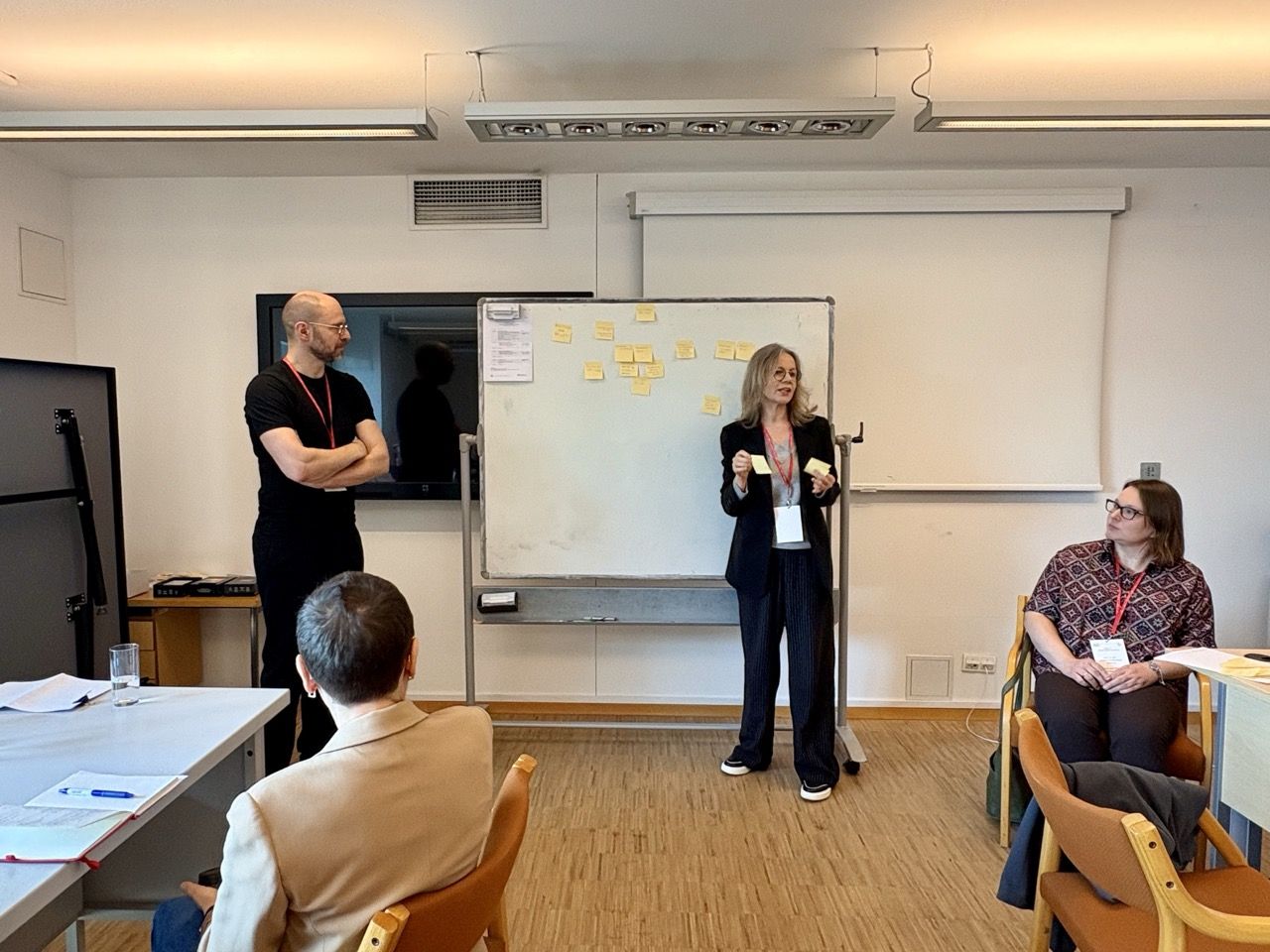 The European Group Transition Group focused on individual, social and systemic changes. As regards individual changes, it was stressed that knowledge of climate changes should be increased and skills must be developed to support conscious and efficient actions. “We are dreaming of citizens who would be aware of climate changes and their implications, with sufficient resources and tools to combat them, capable of understanding that in taking climate-oriented actions, their personal interest coincides with the social interest”, says Maksymilian Bielecki.
The European Group Transition Group focused on individual, social and systemic changes. As regards individual changes, it was stressed that knowledge of climate changes should be increased and skills must be developed to support conscious and efficient actions. “We are dreaming of citizens who would be aware of climate changes and their implications, with sufficient resources and tools to combat them, capable of understanding that in taking climate-oriented actions, their personal interest coincides with the social interest”, says Maksymilian Bielecki.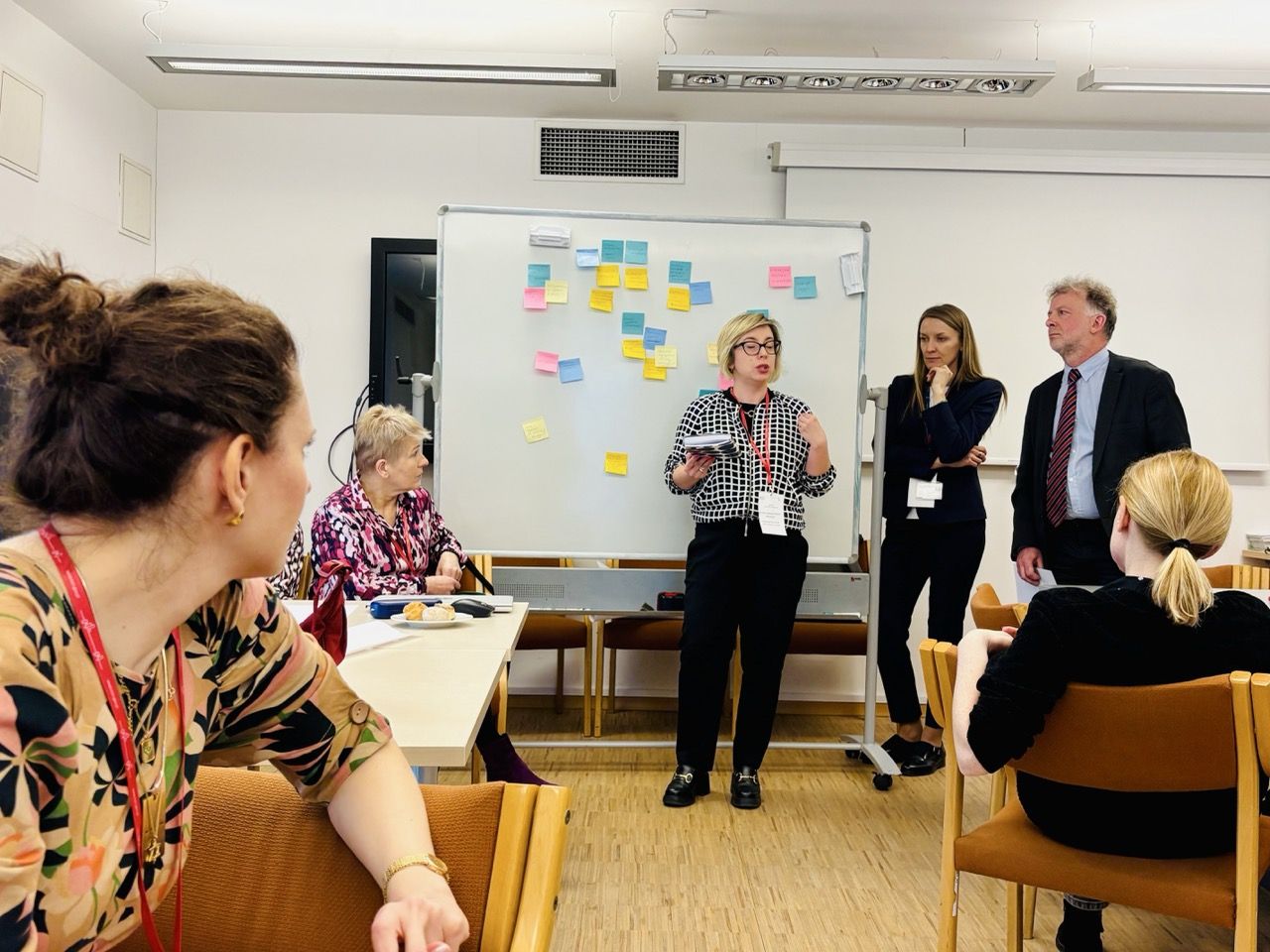 A group moderated by Katarzyna Walczyk-Matuszyk from the Institute of Fundamental Technological Research, PAS focused on education for democracy, public institutions, digital agenda as well as equality and non-discrimination. With regard to equality, the participants developed a vision of a society where equality is a virtue. The idea was supported with the motto “Make Equality Great Again” (MEGA) which was summarised by the moderator as a “change of social attitude to socially excluded groups and equality-related aspects”. In terms of civic education, the group opted for “a knowledge based society, competent, capable of critical thinking, action-oriented, valuing tolerance and mutual respect.” Involvement of citizens and teaching institutions was regarded as the key condition for any change in this regard. It was thought that public institutions, such as courts, police or ombudsman offices should be funded, protected from any political pressure and should develop self-awareness and communication with citizens. Discussions on the digital agenda included references to the unpredictability of technological progress, challenges related to the freedom of speech and regulations of the sector increasingly impacting social life.
A group moderated by Katarzyna Walczyk-Matuszyk from the Institute of Fundamental Technological Research, PAS focused on education for democracy, public institutions, digital agenda as well as equality and non-discrimination. With regard to equality, the participants developed a vision of a society where equality is a virtue. The idea was supported with the motto “Make Equality Great Again” (MEGA) which was summarised by the moderator as a “change of social attitude to socially excluded groups and equality-related aspects”. In terms of civic education, the group opted for “a knowledge based society, competent, capable of critical thinking, action-oriented, valuing tolerance and mutual respect.” Involvement of citizens and teaching institutions was regarded as the key condition for any change in this regard. It was thought that public institutions, such as courts, police or ombudsman offices should be funded, protected from any political pressure and should develop self-awareness and communication with citizens. Discussions on the digital agenda included references to the unpredictability of technological progress, challenges related to the freedom of speech and regulations of the sector increasingly impacting social life. 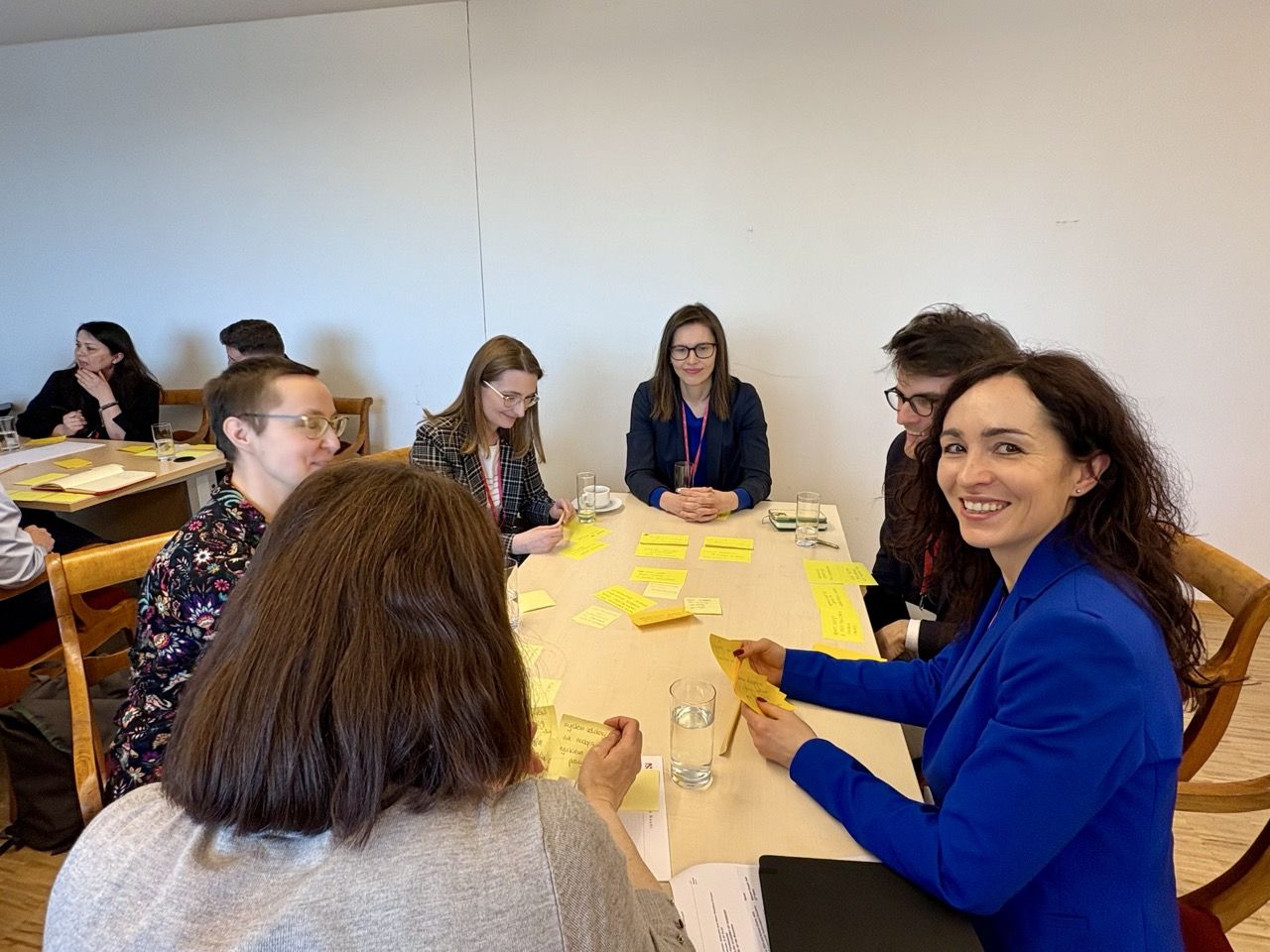 “It is very difficult to design future research with the world changing so much”, says the moderator. “Rapid changes in social policies, migration, cultural wars, digitalisation or Big Data are hard to predict. We are not working with medieval English literature but are dealing with a living organism which is changing so quickly. This is why it is so important to build social and institutional resilience to situations we cannot foresee now”. She stresses that “the workshop results should be flexible enough to capture certain problems and challenges, even if some will change in the future”.
“It is very difficult to design future research with the world changing so much”, says the moderator. “Rapid changes in social policies, migration, cultural wars, digitalisation or Big Data are hard to predict. We are not working with medieval English literature but are dealing with a living organism which is changing so quickly. This is why it is so important to build social and institutional resilience to situations we cannot foresee now”. She stresses that “the workshop results should be flexible enough to capture certain problems and challenges, even if some will change in the future”.
